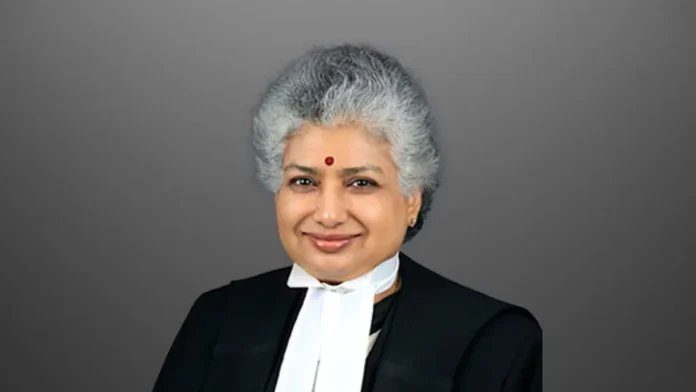Supreme Court judge Justice BV Nagarathna has said that in order to prevent a dispute from entering a family court, pre-litigation conciliation or mediation should be made a mandatory procedure before filing of such cases.
Speaking during the Southern Zone Regional Conference organized by the Family Courts Committee, Supreme Court of India in association with High Court of Karnataka & Karnataka Judicial Academy (Bengaluru), Justice Nagarthna said the crystallization of a dispute in the form of pleadings often resulted in polarization between the parties.
Family Courts must have trained mediators or retired judges as mediators to prevent a dispute from entering a family court, she noted.
Noting that a family was the fundamental unit of human organization and the bedrock of its social stability, she said the family system, however, was undergoing rapid transformation due to societal changes and transformation of laws, which in turn were impacting the legal system as well.
The rising instances of family disputes were a result of the society’s lack of updating attitudes with changing socio-economic situations, rather than the socio-economic liberation of women due to education and employment, she observed, adding that change should be encouraged by society and viewed positively.
Most of the disputes would get resolved, if the parties practiced two steps, of having an understanding & respect for the other, and having awareness of oneself, she said, adding that practicing these two steps would also have a positive impact on children as it would provide them with an enabling environment coupled with secure bond between the parents.
Justice Nagarathna said that whenever the first partner appeared to do something which, in the opinion of the other partner was problematic, the other partner must reason such action standing in the shoes of the first partner. The partners must actively seek to understand the perspective and reasoning of the other partner from the lens of the other partner.
She observed that this would help in creating an engagement between the partners rather than escalating it into a dispute.
Justice Nagarathna said that instead of being individualistic like the Western society, the Indian society was collectivistic, as it promoted interdependence and cooperation, with the family forming the focal point of the social structure.
The conference, having themes of “Family: The Basis of Indian Society” and “Efficiency of Family Courts: Human Resource and Infrastructure,” was attended by Supreme Court judge Justice Ujjal Bhuyan, Chief Justice of Karnataka High Court Justice NV Anjaria, judges of High Courts of Karnataka, Kerala, Andhra Pradesh, Tamil Nadu and Telangana, among others.


